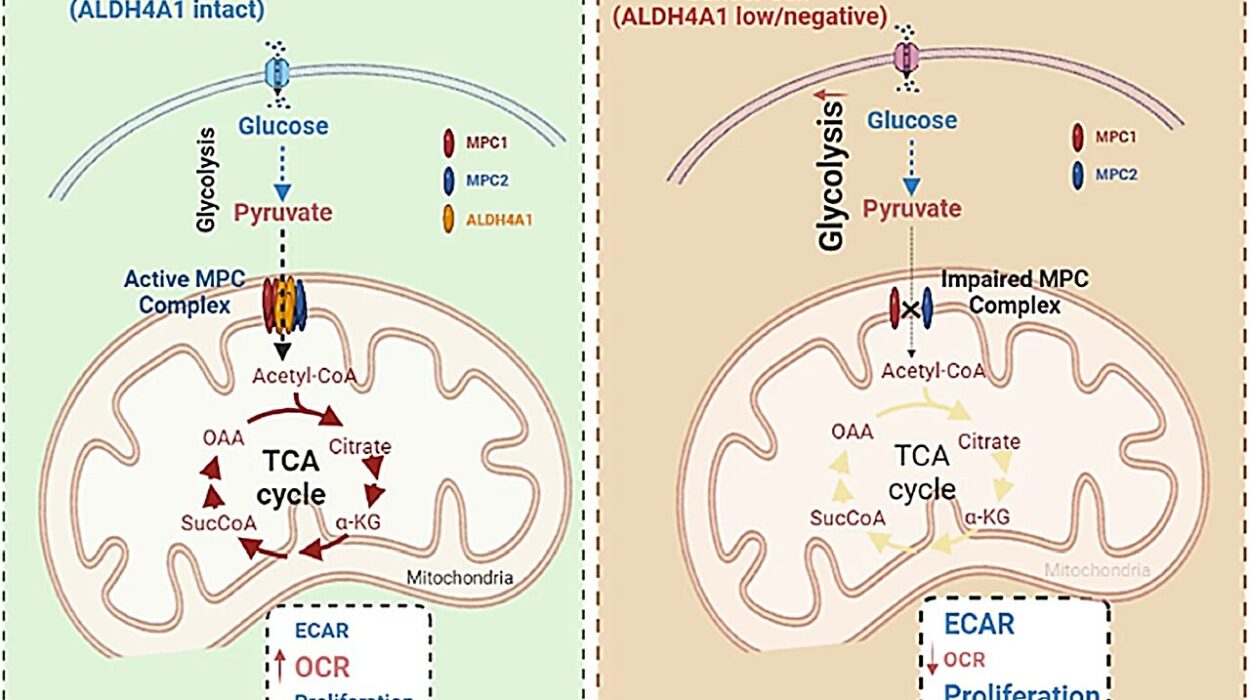In the world of women’s health, buzzwords like collagen, calcium, and iron get plenty of attention. Shelves are lined with beauty supplements promising glowing skin, and advertisements sing the praises of vitamins for energy and hormonal balance. But one nutrient quietly flies under the radar, despite being absolutely essential to nearly every process in your body: magnesium.
It’s not glamorous. It doesn’t sparkle. But magnesium is one of the most crucial minerals for female health—playing a starring role in everything from muscle function and mood regulation to hormone production and heart health. And here’s the kicker: an estimated 70–80% of women are deficient in it.
Modern life has created a perfect storm for magnesium depletion. The foods we eat are often stripped of nutrients. Stress levels are high. Hormonal shifts during menstruation, pregnancy, and menopause increase magnesium needs. Medications like birth control pills and diuretics quietly sap our stores. And women, in particular, are often the last ones to prioritize their own nutrition.
So what does magnesium actually do, and why are women especially vulnerable to its absence? As it turns out, this underappreciated mineral may be the missing link in your health story.
Understanding the Marvel of Magnesium
Magnesium is the fourth most abundant mineral in the human body, and it’s involved in over 300 biochemical reactions. That’s not a typo—300 processes in your body rely on this single mineral to function properly. It helps convert food into energy, build proteins, repair DNA, regulate blood sugar, stabilize blood pressure, support bone health, and maintain nerve and muscle function.
Think of magnesium as the body’s internal multitool. It keeps the lights on and the engine humming, powering both your brain and your biceps. But unlike calcium or vitamin D, magnesium doesn’t store in large quantities in bones or fat. It’s primarily found inside cells, quietly coordinating a symphony of metabolic functions that go largely unnoticed—until something goes wrong.
Deficiency doesn’t always announce itself with big, dramatic symptoms. Instead, it whispers. A little more fatigue than usual. A twitchy eyelid. A few more headaches. Mood swings. Difficulty sleeping. Irregular periods. Maybe even heart palpitations. And slowly, silently, your quality of life erodes.
Hormones, Cycles, and the Magnesium Connection
For women, the menstrual cycle is a dance of shifting hormones—primarily estrogen and progesterone—that impact everything from appetite and sleep to mood and metabolism. What many don’t realize is that magnesium is deeply intertwined with hormonal health, and its role shifts at different life stages.
In the second half of the menstrual cycle, when progesterone levels rise and the body retains more fluid, magnesium levels tend to drop. This is also when many women experience PMS symptoms like bloating, anxiety, irritability, and headaches. Coincidence? Not at all. Magnesium regulates neurotransmitters like serotonin and GABA, which influence mood and anxiety. It also helps prevent the constriction of blood vessels that can lead to menstrual migraines.
A lack of magnesium during this sensitive hormonal window can intensify PMS and increase the risk of painful periods, mood instability, and insomnia. Supplementing magnesium has been shown in several studies to significantly reduce PMS symptoms, particularly when combined with vitamin B6.
And it doesn’t stop with PMS. Women with PCOS (polycystic ovary syndrome)—a condition marked by hormonal imbalance, insulin resistance, and inflammation—also tend to have lower magnesium levels. This deficiency may worsen insulin sensitivity and increase the risk of type 2 diabetes and cardiovascular issues. Again, magnesium is not just helpful—it’s crucial.
Pregnancy and Magnesium: A Critical Lifeline
During pregnancy, magnesium becomes even more essential—not just for the mother’s health, but for the baby’s development. The body requires more magnesium to support the formation of fetal bones, muscles, and tissues, as well as the functioning of the placenta.
Deficiency during pregnancy is linked to a higher risk of preeclampsia, gestational diabetes, premature birth, and poor fetal growth. Pregnant women also often experience leg cramps, insomnia, and constipation—all of which can be mitigated by adequate magnesium intake.
In fact, magnesium sulfate is used in hospitals to prevent seizures in women with severe preeclampsia or eclampsia. While this is a therapeutic dose administered intravenously, it’s a clear indicator of how vital magnesium is to maternal and fetal health.
Despite its importance, many prenatal vitamins contain only minimal amounts of magnesium—often in less absorbable forms. That’s because magnesium is bulky and doesn’t fit easily into a one-a-day pill. Unless a pregnant woman is actively supplementing or eating a magnesium-rich diet, she’s likely not getting enough.
Menopause and Magnesium: Calming the Storm
As women enter perimenopause and menopause, hormonal chaos becomes the new normal. Estrogen levels decline, and with them come hot flashes, sleep disturbances, anxiety, and bone loss. Magnesium can help ease the transition, offering a calming hand through the turbulence.
Declining estrogen contributes to bone demineralization, and while calcium is often the go-to solution, magnesium is just as important. It aids in the activation of vitamin D and regulates calcium absorption. Without it, calcium may not end up in bones where it belongs—instead contributing to arterial calcification and other issues.
Magnesium also supports sleep by promoting relaxation of the nervous system, regulating melatonin, and helping maintain stable blood sugar levels overnight. Women who find themselves waking at 3 a.m. with racing thoughts or night sweats may benefit greatly from magnesium supplementation.
Furthermore, the calming effects of magnesium can reduce the frequency and intensity of hot flashes and mood swings, and its natural anti-inflammatory properties may soothe the low-grade systemic inflammation that increases with age.
The Stress-Magnesium Feedback Loop
Magnesium and stress have a complicated relationship. Stress depletes magnesium. And low magnesium increases sensitivity to stress. It’s a vicious cycle—especially for women, who are more likely to suffer from anxiety disorders, and who often juggle multiple roles as caregivers, professionals, and emotional anchors in their families.
When you’re stressed, your adrenal glands release cortisol and adrenaline, your heart rate speeds up, and your muscles tense. Magnesium helps regulate this stress response by calming the nervous system and acting as a natural calcium channel blocker, which reduces muscle tension and lowers blood pressure.
But the more stress you experience, the more magnesium your body uses. If you’re not replenishing it through diet or supplements, you begin to feel the physical toll: insomnia, irritability, fatigue, and even heart palpitations. Women with chronic stress, high-pressure jobs, or trauma histories are especially vulnerable to magnesium depletion.
Even emotional stress—grief, anxiety, or burnout—uses up this vital mineral. Magnesium isn’t just a helper here. It’s an anchor. Without enough, your body is essentially stuck in high gear, unable to find its way back to calm.
Magnesium’s Role in Sleep and Mental Health
Let’s talk about sleep—the holy grail of health and one of the first things to suffer when magnesium is in short supply. Magnesium influences GABA, the neurotransmitter that promotes deep, restorative sleep. It helps you fall asleep, stay asleep, and wake up feeling refreshed.
Women experiencing hormonal fluctuations often report difficulty falling asleep or waking frequently in the early morning hours. Magnesium supports both circadian rhythm regulation and adrenal function, helping to stabilize energy levels and mood throughout the day and night.
It’s not just sleep. Magnesium is also key in managing depression, anxiety, and brain fog—all of which disproportionately affect women. Research shows that magnesium supplementation can be as effective as some antidepressants for mild to moderate depression, particularly in those with low magnesium levels.
This is not a cure-all, of course, but the evidence is mounting: the modern epidemic of mood disorders may have a nutritional component, and magnesium is a powerful, affordable, and natural place to start.
Heart Health, Blood Sugar, and Beyond
Magnesium’s role in women’s health extends deep into the cardiovascular and metabolic systems. It helps regulate blood pressure by relaxing blood vessels and maintaining electrolyte balance. Women with low magnesium levels are more likely to experience high blood pressure, arrhythmias, and elevated cholesterol—particularly after menopause.
It also plays a central role in insulin sensitivity. Low magnesium levels are correlated with insulin resistance and higher blood sugar levels, both of which are major risk factors for metabolic syndrome and type 2 diabetes. Given that PCOS and gestational diabetes already increase these risks, magnesium becomes not just helpful, but essential.
Additionally, magnesium supports muscle recovery, energy production, and hydration, making it an important mineral for active women and athletes. It can help reduce post-workout soreness and improve overall performance—especially during endurance exercise when electrolytes are lost through sweat.
Why Deficiency Is So Common in Women
If magnesium is so essential, why are so many women deficient in it?
The answer lies in a combination of modern lifestyle factors and biological demands. For starters, our soil is depleted of minerals, and the foods we eat—especially processed ones—contain far less magnesium than they did a century ago. Refined grains, sugars, and chemicals further deplete magnesium stores.
Add to that caffeine, alcohol, and common medications (such as birth control pills, proton pump inhibitors, and diuretics), and it’s no wonder magnesium is slipping through the cracks. Hormonal fluctuations, stress, and chronic inflammation all increase demand.
And here’s the twist: blood tests don’t always catch magnesium deficiency. Most of the body’s magnesium is stored in tissues and bones, not in the bloodstream. So you can have normal lab results and still be profoundly deficient at a cellular level.
This is why many experts recommend monitoring symptoms—not just lab values—as a better gauge of magnesium status.
How to Boost Your Magnesium Naturally
The best place to start is through whole foods. Magnesium-rich options include leafy greens (like spinach and kale), seeds (pumpkin, chia, flax), legumes, nuts (almonds, cashews), avocados, bananas, and dark chocolate. Yes—dark chocolate is a legitimate magnesium source, and now you have an excuse to enjoy it guilt-free.
That said, even the best diet may fall short due to modern agricultural practices. In these cases, supplementation can be a powerful tool.
Magnesium comes in several forms, each with different absorption rates and benefits. Magnesium glycinate is excellent for mood and sleep. Magnesium citrate supports digestion. Magnesium malate is energizing and good for muscle function. Magnesium threonate crosses the blood-brain barrier and may enhance cognitive function. Avoid magnesium oxide, as it is poorly absorbed.
Women with severe symptoms or conditions like PCOS, anxiety, insomnia, or PMS may benefit from tailored supplementation under the guidance of a healthcare provider.
The Bigger Picture: Reclaiming Women’s Health with Magnesium
Magnesium is more than a nutrient—it’s a signal that women’s health deserves deeper attention, holistic approaches, and personalized care. It’s a reminder that our bodies are complex ecosystems, not machines to be fixed with one-size-fits-all solutions.
If you’re feeling exhausted, overwhelmed, hormonally out of balance, or just not quite yourself, magnesium may not be the entire answer—but it could be a missing piece.
Reclaiming your health begins with asking better questions, listening to your body, and nurturing it with the minerals it’s quietly begging for. And among those, magnesium should be at the top of the list.
Not because it’s trendy, but because it’s foundational.






